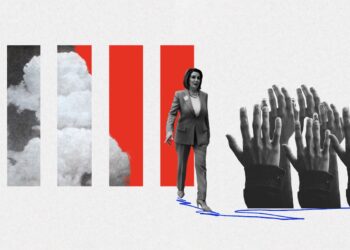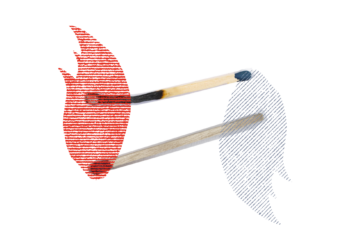
On September 15-16, at France’s request, the UN Security Council dealt with the Armenian-Azerbaijani conflict for the first time since 1994. As uncertainty reigns, all options are on the table, even the darkest—that of a renewed aggression by Baku.
Several points from the readout from the UN Security Council session on September 15, 2022, bear comment. No state was specifically labeled as the aggressor. All members condemned the resumption of fighting and called for a resolution of the conflict through diplomatic means, and invited the international community to provide the necessary efforts to prevent a return to hostilities. By reading between the lines, however, the subtleties of diplomatic language show three distinct stances.
The most favorable stance toward Armenia was taken up by France, which openly identifies Azerbaijan as having started the hostilities, without, however, labeling Baku as the aggressor. India, for its part, demonstrated even more subtlety in the sense that New Delhi called on the aggressor to cease hostilities immediately without naming it. In this same group, but with a slightly more nuanced position are the United States and Russia, which have called on the return of Armenian and Azerbaijani forces to their starting positions. This could be cause for surprise in Armenia since Armenian troops are located inside their own territory. France, the United States and the United Kingdom invoked the necessity of respecting international humanitarian law, namely with respect to freeing POWs, without expanding on that. Regarding the security of unarmed groups, namely the Armenian population affected by these engagements, Norway, Ireland and Kenya, and the three Western permanent members denounced strikes on civilian populations and infrastructure on Armenian territory.
In the second category, that of more “careful” states, are Gabon, Mexico, Ghana, Brazil, the UAE, and Albania, which hide behind empty peace rhetoric; and in the third category, those less favorable to Armenia, are Russia and China who have distinguished themselves by a total absence of any consideration towards civilian victims of this aggression. This is not surprising when we know that authoritarian states favor the superiority of formal law–– that of States, over more substantial law, which is founded around the rights of people, and is more associated with democracies.
Does this session comprise a warning or a green light to Baku for renewed aggression? The debate is ongoing, but the situation seems to point more towards the second option. Indeed, in international law, naming the aggressor also imposes upon them responsibility for the conflict after a war’s end. In these conditions, with Azerbaijan not having been directly labeled as an aggressor (either Baku is asked to keep its forces at their initial borders without “aggressor” vocabulary or the aggressor is asked to retreat without being formally identified), the door to a new offensive is wide open. It’s in this context that, following the Security Council discussion, Armenia’s Prime Minister Nikol Pashinyan, held talks with presidents Macron and Putin, and U.S. Secretary of State Antony Blinken, in which he called on them to stay on high alert, and to keep putting pressure on Baku to cease more aggression.
This strategic diplomacy is even more urgent given the lack of a common declaration at the Security Council session. In spite of calls for unity in the supreme body of multilateralism by Miroslav Jenca, a high ranking UN official and Gabon’s ambassador, we are still very far from a Security Council resolution, leaving Armenians with a sense of total uncertainty. This is especially true since, according to European diplomats, Russia has prevented any agreement on a joint declaration by the Security Council, because it would have liked to insert in the text the declaration of November 9, 2020, ending hostilities following 44 days of war, a document that the United States—and to a lesser extent—France do not recognize, considering that the Minsk Group, which they co-chair with Russia, was excluded from the Armenian-Azerbaijani negotiations under the aegis of Russia and to a lesser extent Turkey. Moreover, it is striking just how the member states’ positions are easily read: Russia, China, Brazil and Norway (although a member of NATO) limited to the ceasefire agreement of November 9, 2020. India, Kenya, Mexico and France maintain a balance between the agreement concluded under Russia and Western mediation (European Union or OSCE), while the United Kingdom, the United States, Albania and Ireland recognize only Western mediation in their declaration. The other countries only evoke the urgency of maintaining the ceasefire as if it fell from the sky.
Under such vague circumstances, having regard to knowledge of the issue on the part of the members of the Security Council but also to the war in Ukraine, the Armenian-Azerbaijani conflict is far from resolved. If the international community expects a peaceful, inclusive reconciliation, where the defeated party maintains dignity, Turkey, Azerbaijan and Pakistan want to see a victor’s peace, one of capitulation and humiliation for the defeated. This is the backdrop to the issues underlying the discussion in the United Nations Security Council.
In these circumstances, this session seems to imply that, in the absence of a normative framework, the reality on the ground points to a green light for Baku, unless other external developments at the UN emerge as deterrents.
Armenia’s future in the CSTO, a collective security alliance under the orders of Moscow, is under question. After being attacked, Armenia called for CSTO intervention under article 4 of its Charter which stipulates that in the event of aggression by a third country, the allies automatically intervene. However, the General Secretariat of the CSTO has only sent an observation mission to Armenia’s front line, while other member-state countries such as Kazakhstan and Kyrgyzstan rejected sending contingents to the South Caucasus. Armenia may be able to question the relevance of remaining in this alliance. This is food for thought for Russia: after having humiliated Armenians by pretending to save them in 2020, can Russia take the risk of seeing Armenia leave, the only member of the CSTO in the South Caucasus especially as this change of orientation would mean rapprochement between Armenia and the West?
Precisely, the West, and the United States in particular, which is increasing initiatives in support of Armenia, the visit to Yerevan––and only to Yerevan––by Speaker Nancy Pelosi, also has a role to play in conflict prevention. The more the West gets involved in favor of Armenia’s interests, the more Armenia regains strategic value in the eyes of the Russians, who cannot sacrifice their Armenian ally any further, especially since Russia is going through a rough patch in Ukraine.
Additionally, Iran, which from the beginning has stood as the guarantor of Armenia’s territorial integrity, no longer hesitates to display its annoyance in the face of Azerbaijan’s provocations. At the recent summit of the Shanghai Cooperation Organization in September 2022, in Samarkand, Uzbekistan, Iranian President Ebrahim Raisi was firm towards Aliyev: Iran will not accept any “corridor” on Armenian territory, nor the violation of the territorial integrity of its only Christian neighbor which offers an alternative to the Iran-Azerbaijan-Russia route.
Finally, Armenians must urgently demonstrate an unprecedented level of national unity and mobilization at this moment. This requires the government to act less defeatist and divisive, and for the opposition to be less radical and more reasonable. It’s not the time for nikolomania or nikolophobia, but for national solidarity and sacred unity.
Also see
The Biden Doctrine Comes to Armenia
Azerbaijan has made an enormous strategic mistake, Russia has allowed for a sizable power vacuum in the region, and the United States has determined to capitalize on these developments, undertaking a policy pivot in the South Caucasus.
Read moreArmenia’s Impossible Position
For years, the EU did nothing to reign Putin in. Finding an alternative for its energy needs, the EU traded one gas supplier waging a genocidal war of aggression—Russia, with another—Azerbaijan.
Read moreListen to the Words of Dictators, Don’t Say We Didn’t Tell You
No analysis, no commentary, just facts: How Azerbaijan’s President Ilham Aliyev ideologically prepared Azerbaijani society for war not only against Artsakh (Nagorno-Karabakh), but also Armenia-proper.
Read moreName the Aggressor
Following Azerbaijan’s latest attack, this time against Armenia proper, international actors are calling on both sides to de-escalate the situation. Bothsidism in this context is ridiculous, tiresome, and shameful. Not naming the aggressor or who is benefiting from violence is not a neutral act. It is not telling the truth.
Read moreNews updates
Azerbaijan Launches Large-Scale Attack Against Armenia
Azerbaijani Armed Forces launched a major attack on the sovereign territory of the Republic of Armenia at approximately midnight on September 13, 2022. A US-brokered ceasefire came into effect late on the evening of September 14, which continues to hold.







Great article. Informative and to the point.
We have a huge amount of constructive work to do in these crucial times.